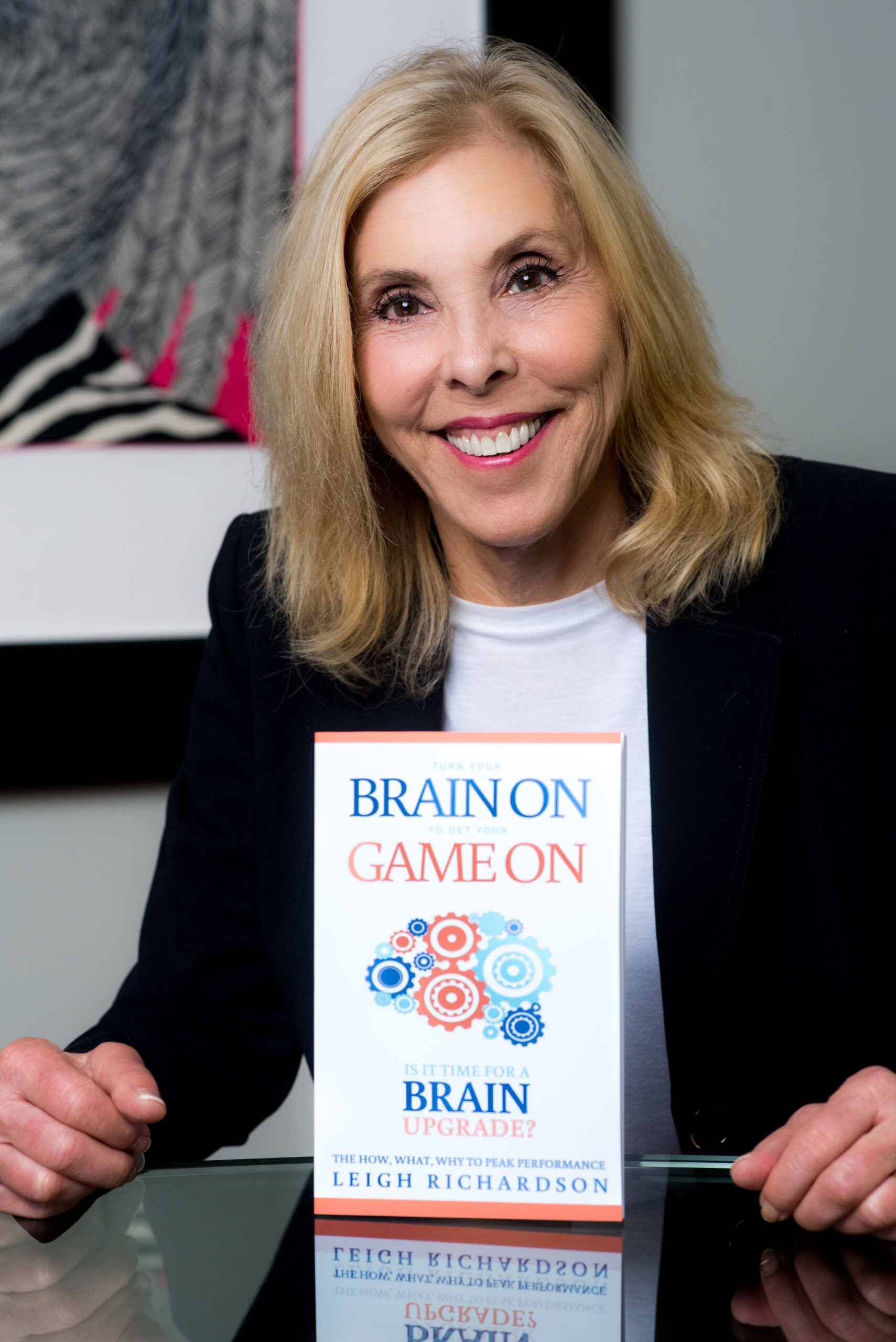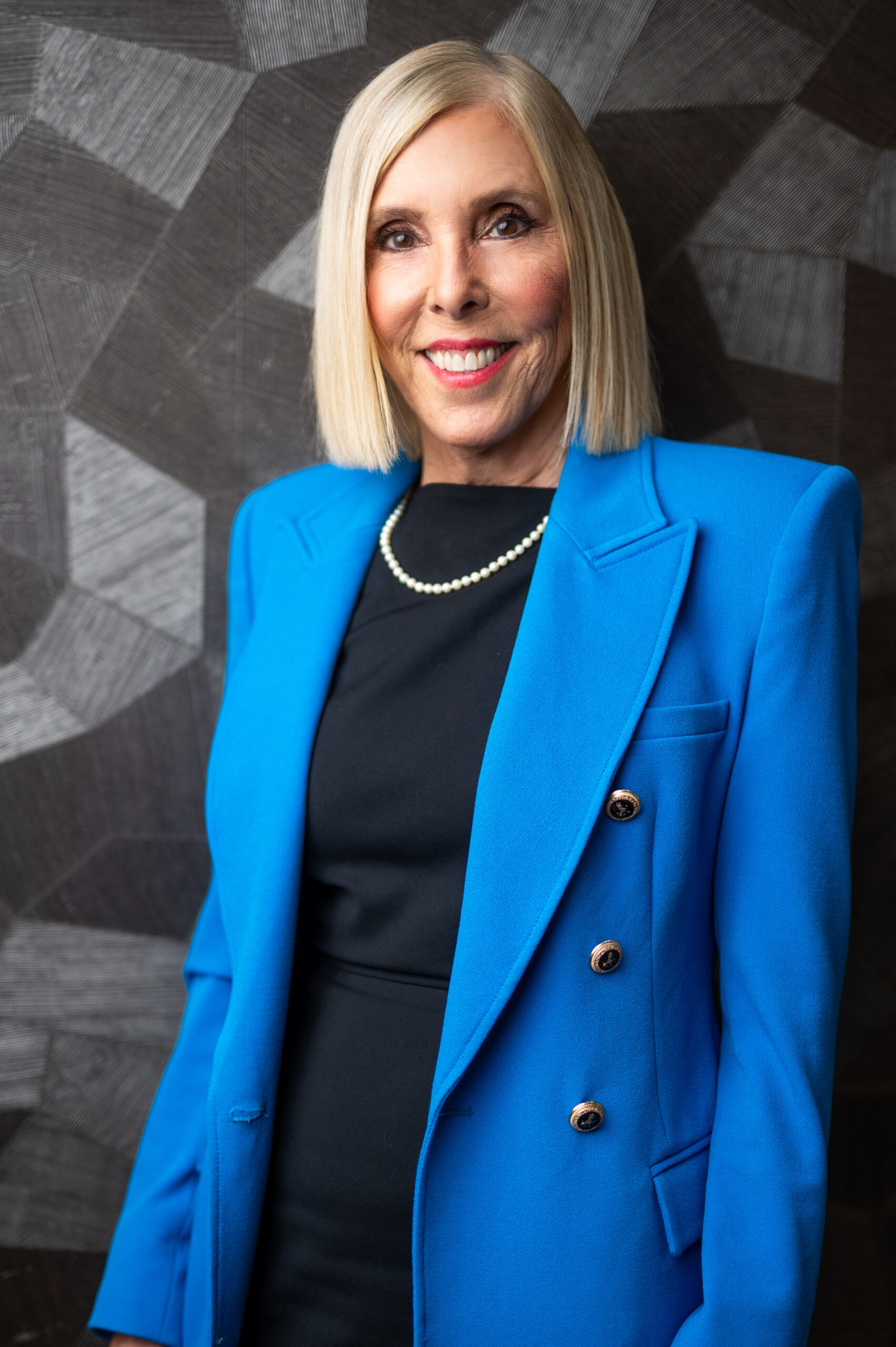





Contact Dr Leigh E. Richardson
Email: [email protected]
Phone: 214-329-9017


Biography
Dr Leigh Richardson has studied human behavior for over 30 years, the initial focus was on organizational behavior then shifted to human behavior in 2003 after her son had a traumatic brain injury. Dr Leigh has been in ICU twice with brain injury and all of this fueled her need to understand how the brain works, or why it doesn’t work. She can relate to brain dysregulation on a very personal level and she visualized what could be done for many others like her.
Dr Leigh is the founder and clinical director of the Brain Performance Center® utilizing her MBA, MS, Counseling, and board certifications to offer state-of-the-art solutions for “brain” problems. As a brain health expert, she regularly contributes to radio and television stations across the nation. Whether it is anxiety, ADHD, depression, insomnia, or brain injury Leigh’s understanding of the brain and the different methodologies that can be used to organically change the brain is immense. And more importantly, will provide the right solution for the problem. Leigh has a unique ability to connect with people, understand their situation, and win their trust.
Dr Leigh is the author of Turn Your Brain On – To Get Your Game On, an international speaker as well as a popular syndicated radio host. Leigh enjoys educating the general public on how lifestyle choices and environmental factors impact brain health and the physiology and psychology of your mental state.
Dr Leigh gets inspiration from her friends, family, and clients. It is the positive change that she sees in others that motivates her to continue to learn. She just recently converted the upstairs office to an in-home art studio where she paints as a way to explore her creativity.
Interview with Leigh: Commonly Asked Questions
I saw the effect of brain injury after my son was hit by a car and three years later felt the impact. We went to the emergency room and got through the critical stages and thought the brain injury was gone. But it wasn’t. Three years later he came to me and told me he had ADHD. I had never heard of it but when your son asks for help you have to figure things out. Anytime you hit your head you change the way neurons and dendrites are wiring and firing and that is what happened from the concussion – but not for the good.
The first time I was in ICU for brain injury I was told that my sense of smell had been diminished as a result of the accident and with two young children I was relieved that it wasn’t my sight or my hearing. Do you realize you have to smell something before you taste it? But it’s what I wasn’t told that was challenging. Why did I not like to read anymore (other than People magazine)? Why was spatial processing so onerous? The second injury resulted in a brain bleed and while I did not have to have surgery I was left with emotional and cognitive difficulties.
So, I know brain injury well, both personally and professionally. The recovery option that has benefited me, my family, and many others is neurofeedback. When I found a neurologist and started my son in the program I liked the initial changes and thought I should try it too. My son was able to move forward and I got my sense of smell back, that was a life-changing and career-changing moment. In the last fifteen years, so many new training modalities have come into play and it is exciting to think about the many ways we can use technology to heal the brain.
We work with medical practices that are looking for an integrated approach to medicine. More and more doctors are seeing that medication isn’t the best solution for everyone and the dependency that can occur can be harmful. And, they are seeing the correlation between physical and mental health.
We use neuroscience and psychotherapy to create regulation in the brain. Increasing the neuroplasticity in the brain gives the brain the ability to change and rewarding the brain when it makes the right changes utilizing neurofeedback increases the circuitry in the networks and hubs of the brain. A healthy brain improves quality of life on all levels.
The longer I work with the brain the more I realize, no two brains are the same. I had been working with a neurologist since 2005 that only wanted to utilize neurofeedback to create change in the brain.As my style evolved I became more eclectic, wanting to utilize different techniques to change the brain and more importantly, change the human behavior. I always work off of treatment goals with my clients because, honestly I believe you if you don’t know what changes you are looking for you will not see them. Brain Performance Center was built around a behavioral health model that considers the physiology and psychology of your mental state.
WPNT Pittsburgh (MNT)
KAEF Eureka
KATU Portland
KATV Little Rock
KBAK Bakersfield
KBFXCD Bakersfield (Fox)
KBTV Fox Beaumont
KBVU Eureka
KCVU Chico
KECI Missoula
KEPR Yakima
KEYE Austin
KFDM Beaumont
KFOX El Paso
KFXL Lincoln-Hastings-Kearney
KHGI Lincoln-Hastings-Kearney
KMPH Fresno
KOKH Oklahoma City
KOMO Seattle-Tacoma
KPTH Sioux City (Fox)
KPTHDT3 Sioux City (CBS)
KPTM Omaha
KRNV Reno
KRXI Reno
KSAS Wichita
KSNV Las Vegas
KTUL Tulsa
KTVL Medford
KTVM Butte-Bozeman
KTXELD San Angelo (ABC)
KTXS Abilene
KUTV Salt Lake City
KVCW Las Vegas
KVII Amarillo
WABMDT2 Birmingham (ABC)
WACH Columbia, SC
WATM Johnstown-Altoona-State
WBFF Baltimore (Fox)
WBFFDT2 Baltimore (MNT)
WCCU Champaign
WCHS Charleston, WV
WCTI Greenville, NC
WCYB Tri-Cities (
WEAR Mobile
WEMT Tri-Cities)
WEYI Flint
WFXL Albany, GA
WGME Portland, ME
WGXA Macon (Fox)
WHAM16 Rochester
WHP Harrisburg
WICD Champaign
WICS Champaign
WJAC Johnstown-Altoona-State
WJAR Providence
WJLA Washington, D.C.
WKEF2SD Dayton (Fox)
WLOS Greenville, SC
WLUK Green Bay
WMSN Madison
WNUV Baltimore
WNWO Toledo
WOAI San Antonio
WOLF Scranton
WPBN Traverse City
WPDE Myrtle Beach
WPEC West Palm Beach
WPFO Portland, ME
WPGH Pittsburgh (Fox)
WPMI Mobile
WRLH Richmond
WRSP Champaign
WSBTDT2 South Bend (Fox)
WSET Roanoke
WSMH Flint
WSTM Syracuse
WSYX Columbus (ABC)
WTGS Savannah
WTOV Wheeling
WTVC Chattanooga (ABC)
WTVCDT2 Chattanooga (Fox)
WTVX West Palm Beach
WTWCDT2 Tallahassee (Fox)
WUCW Minneapolis-St. Paul
WUTV Buffalo
WWCP Johnstown-Altoona-State College
WWHO Columbus (CW)
WWMT Grand Rapids
WXLV Greensboro
WYDO Greenville, NC
WZTV Nashville
Social Media
Interview with Leigh Richardson
